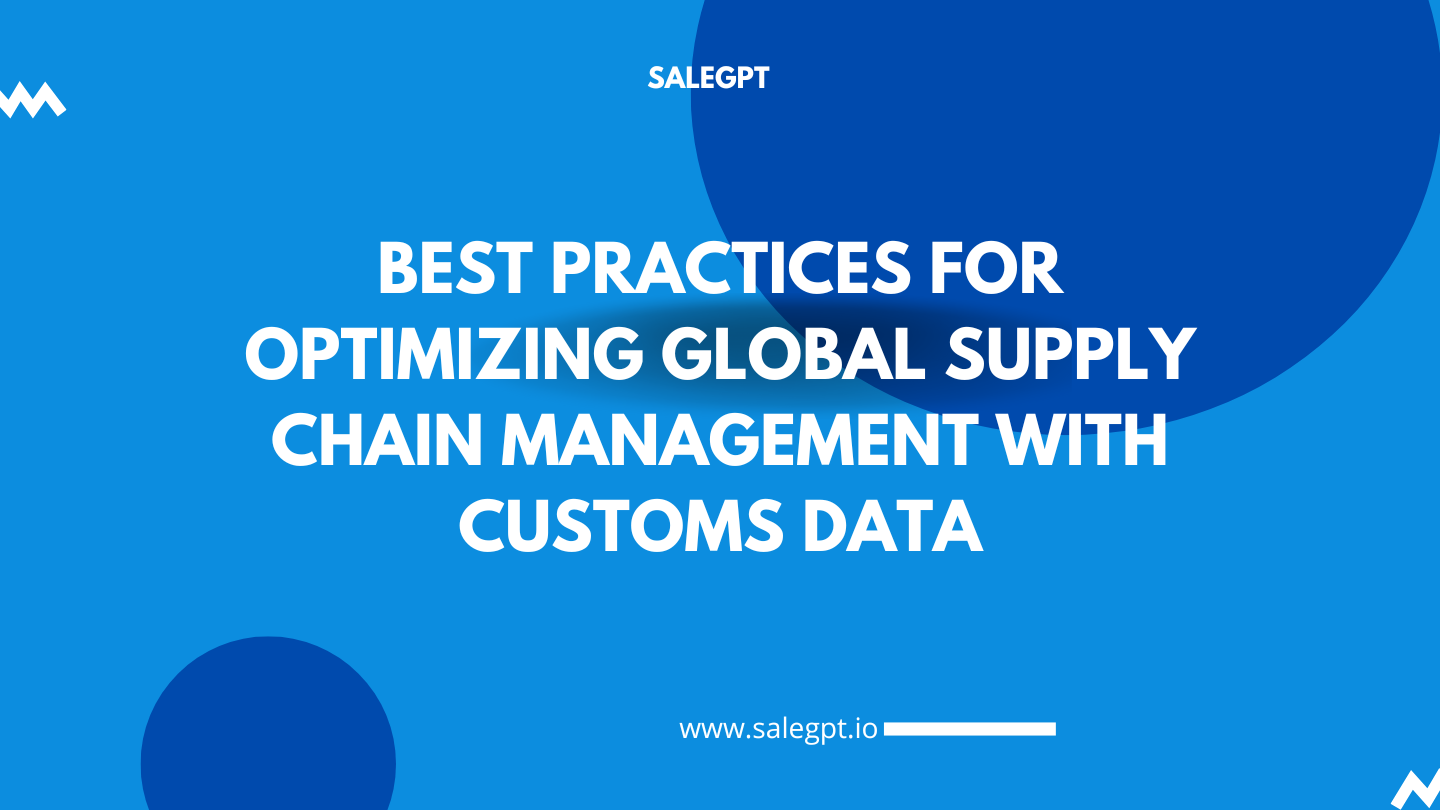
In today’s globalized world, managing a supply chain efficiently is critical for businesses looking to stay competitive. With the complexities of international trade, evolving regulations, and unpredictable customs processes, businesses must adapt quickly and leverage all available tools.Customs datais one of the most powerful resources businesses can use to optimize their global supply chain management.
This article outlines the best practices for using customs data to enhance supply chain efficiency, ensure compliance, and minimize risks. By following these best practices, businesses can gain a competitive advantage in global trade and reduce operational costs.
1. Use Real-TimeCustoms Datafor Accurate Shipment Tracking
Best Practice:
Real-time tracking is critical for maintaining efficiency and ensuring that shipments reach their destination on time. In global supply chains, delays at customs can disrupt the entire delivery process. By utilizing real-time customs data, businesses can monitor the status of shipments as they move through customs and logistics networks, allowing them to quickly identify and resolve any issues.
How to Implement:
Integrate customs data into your logistics system to get updates on shipment status and customs clearance. SaleAI’s platform provides seamless integration, offering real-time visibility into trade flows, enabling businesses to track shipments at any stage and make data-driven decisions to optimize their supply chain.
2. Automate Customs Compliance for Faster Processing
Best Practice:
Ensuring customs compliance is one of the most time-consuming aspects of global supply chain management. With constantly changing regulations, businesses can easily fall behind if they don’t stay on top of new rules and tariffs. Automation of customs compliance processes is a best practice that can save time and reduce human error.
How to Implement:
Integratingcustoms datawith automated compliance systems helps businesses ensure that their shipments meet all the necessary requirements, such as tariff classifications, import/export rules, and documentation. SaleAI’s platform offers a suite of automation tools to streamline documentation management and reduce manual errors.
3. Leverage HistoricalCustoms Datafor Predictive Analysis
Best Practice:
Predicting future disruptions and trends in the supply chain can provide businesses with a significant competitive edge. Historical customs data offers a wealth of information about trade volumes, tariff changes, and customs clearance patterns. By analyzing this data, businesses can predict potential supply chain bottlenecks, optimize sourcing strategies, and forecast demand more accurately.
How to Implement:
Use customs data to track historical trade flows and identify patterns in customs clearance times. With SaleAI’s AI-powered insights, businesses can forecast potential disruptions, plan alternative shipping routes, and make proactive adjustments to their supply chain strategies.
4. Optimize Supplier Relationships with Real-Time Data
Best Practice:
The strength of supplier relationships directly impacts supply chain performance.Customs dataprovides valuable insights into supplier performance, such as delivery consistency, customs clearance efficiency, and product quality. By using real-time data, businesses can identify the best-performing suppliers and negotiate better terms, ensuring that the supply chain remains efficient and compliant.
How to Implement:
Integrate customs data into your supplier management system to monitor supplier performance. Use SaleAI’s platform to gain real-time insights into customs data and supplier reliability, enabling businesses to make better sourcing decisions and build stronger, more reliable supplier relationships.
Conclusion:
Optimizing global supply chain management requires businesses to adopt data-driven strategies that increase efficiency and reduce risks. By leveraging customs data, businesses can streamline their operations, ensure compliance, and improve decision-making. SaleAI provides real-time insights and automation tools to help businesses navigate the complexities of international trade while maintaining cost-efficiency and regulatory compliance.
By following these best practices and using the right tools, businesses can stay competitive in the fast-paced world of global trade. Ready to optimize your supply chain? ContactSaleAItoday to learn how our platform can help you leverage customs data for better supply chain management.




